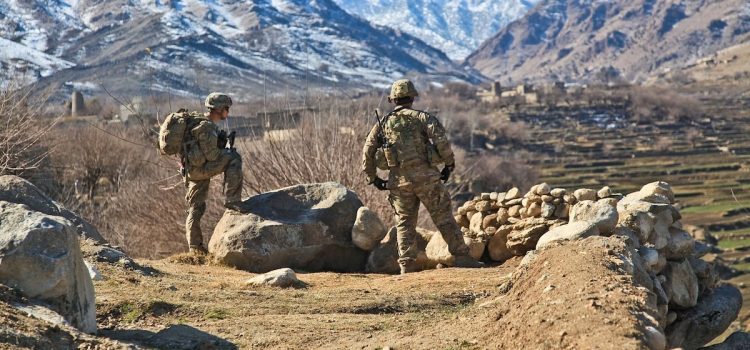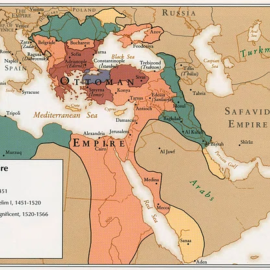

This article is an excerpt from the Shortform book guide to "Battlegrounds" by H. R. McMaster. Shortform has the world's best summaries and analyses of books you should be reading.
Like this article? Sign up for a free trial here.
When it comes to Afghanistan, where did U.S. policy go wrong? How did it become such a failure?
According to General McMaster, Afghanistan was an opportunity for the U.S. to make peace in the region. Instead, the U.S. allowed it to return to a place of conflict that once again poses a serious threat to the world.
Continue reading to learn McMaster’s take on Afghanistan and the lessons to be learned.
General McMaster on Afghanistan
Unlike Russia and China, which are pushing for dominance on the world stage, the people of war-torn Afghanistan face a daily struggle for survival. Nevertheless, Afghanistan poses a threat to world peace as a refuge and training ground for multinational terrorist organizations. According to General McMaster, Afghanistan is a tragic missed opportunity where the U.S. had a chance to foster peace and failed due to inconsistent policies and its flawed understanding of the history and character of the Afghan people.
The Afghan nation has been traumatized by decades of war and internal strife. The struggle to end the Soviet occupation attracted legions of radicalized Islamist fighters to the cause from throughout the Middle East and southern Asia. However, after the Soviets withdrew, scores of criminal warlords took their place. The Taliban, a violent terrorist group, consolidated power by promising peace—which it established through brutal subjugation. The Taliban and other groups, such as Al-Qaeda, developed a closely linked, mutually supporting terrorist ecosystem through their shared, radical Islamist ideology and their ability to recruit young people to their cause of uniting the Muslim world under a fundamentalist theocracy.
(Shortform note: The Soviet Union invaded Afghanistan in 1979 when it feared that Afghanistan’s political instability would undermine its fledgling Communist ruling party. The Soviets’ 10-year occupation prompted the formation of mujahideen resistance groups which garnered support from many foreign nations, including the United States. When the Taliban came to power in 1994, it was composed of mujahideen rebels who believed that the leaders of the anti-Soviet resistance had betrayed their extremist interpretation of Islam. Critics of American foreign policy sometimes blame the U.S. for the Taliban’s creation, but those in alignment with McMaster’s views argue that the U.S. couldn’t have imposed its values any more than the Soviets could.)
McMaster says that the U.S.’s mistake following its campaign to oust the Taliban in 2001 was not following through on the political front to help establish new, stable leadership. Instead, its support for the fledgling Afghan government was inconsistent due to assumptions that military triumph was enough and that Western-style democracy would naturally emerge as long as the terrorists were beaten. This belied the fact that the Afghan people aren’t one group but many, and building a stable multiethnic coalition requires a long-term commitment. Many people in Afghanistan worked hard for such a thing, but the U.S.’s limited and uncertain presence gave the Taliban and its partner organizations the time and space they needed to regroup.
(Shortform note: In Why Nations Fail, Daron Acemoglu and James A. Robinson state that open political institutions that represent all groups within a population are a prerequisite for national stability. Governments dominated by one ethnic or sectarian group become unsustainable when they empower a select minority over the larger population. Acemoglu and Robinson argue that struggling nations can turn around and become open societies if their internal factions make use of compromise instead of violence and if those compromises are fairly enforced. McMaster suggests that it’s precisely in this area—preventing violence and enforcing compromise—that the U.S. had an opportunity to foster democracy and growth in Afghanistan.)

———End of Preview———
Like what you just read? Read the rest of the world's best book summary and analysis of H. R. McMaster's "Battlegrounds" at Shortform.
Here's what you'll find in our full Battlegrounds summary:
- Why the U.S. has lost influence on the global stage
- The bad assumptions that cloud U.S. foreign policy
- Strategies the U.S. should adopt in order to help defend the free world






